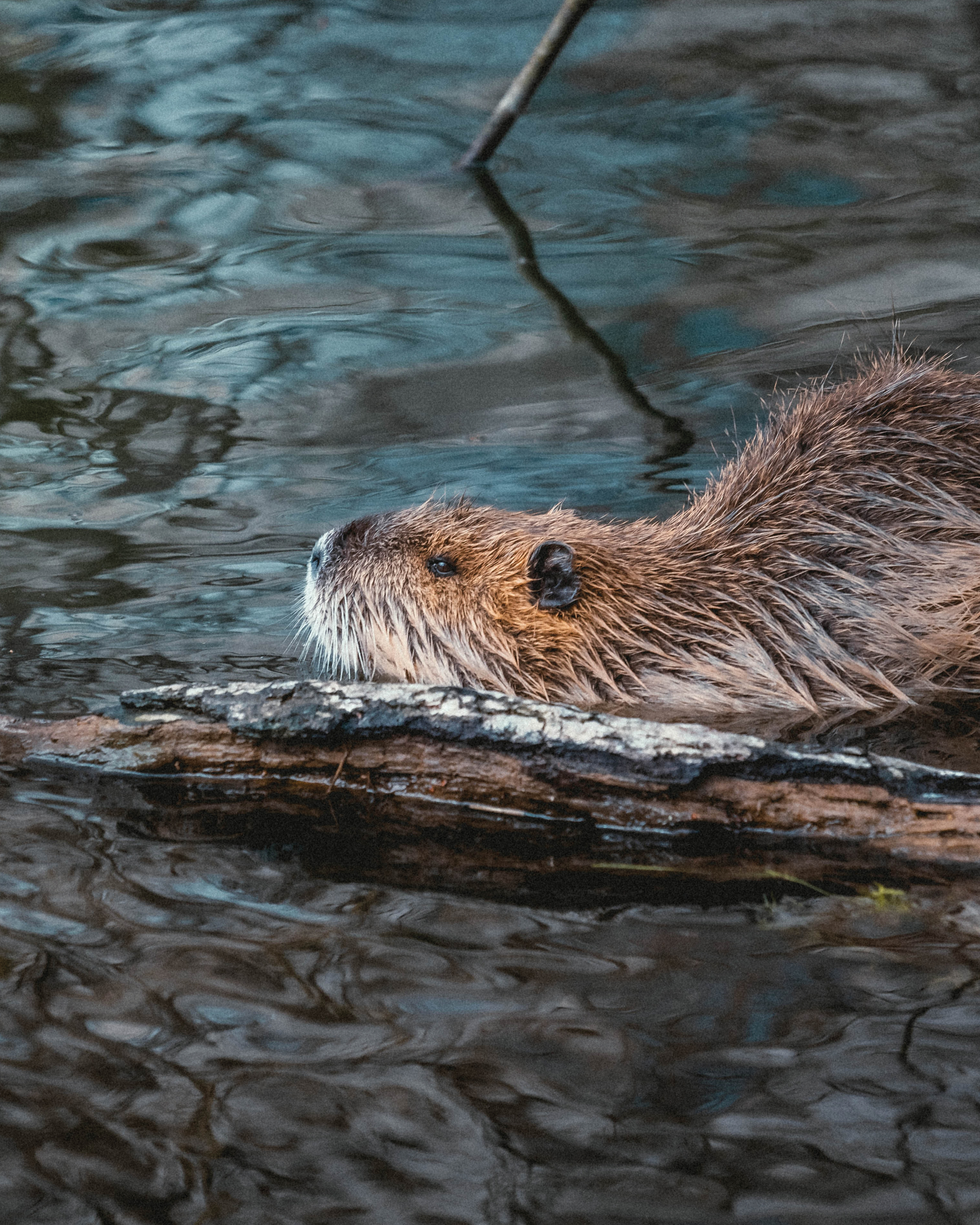

Downloads
DOI:
https://doi.org/10.58981/bluepapers.2023.1.05Published
Issue
Section
License
Copyright (c) 2023 Carlota Houart

This work is licensed under a Creative Commons Attribution 4.0 International License.
How to Cite
Abstract
Rivers are ecosystems indispensable for the survival of both humans and non-human species. Yet humans often disregard their importance and modify the existing socio-natural equilibrium of rivers in the pursuit of economic and political agendas. With a focus on new water justice movements, this article advocates a perspective that recognizes rivers as hydrosocial territories, actively and continuously co-created, co-inhabited, and transformed by a multiplicity of human and other-thanhuman beings. Such a perspective opens a path to a multispecies justice framework that involves rethinking the relations between human and non-human beings in the worlds we share as a medium for creating more socio-ecologically just and biodiverse water worlds.
References
Anderson, Elizabeth P., Sue Jackson, Rebecca E. Tharme et al. 2019. “Understanding Rivers and their Social Relations: A Critical Step to Advance Environmental Water Management.” WIREs Water 6, no. 6: 1–21. https://doi.org/10.1002/wat2.1381.
Berros, María Valeria. 2017. “Defending Rivers: Vilcabamba in the South of Ecuador.” RCC Perspectives, no. 6: 37–44. doi.org/10.5282/rcc/8213.
Boelens, Forigua-Sandoval, Duarte-Abadía and Juan Carlos Gutiérrez-Camargo. 2021. “River Lives, River Movements. Fisher Communities Mobilizing Local and Official Rules in Defense of the Magdalena River.” Journal of Legal Pluralism and Unofficial Law 53 no. 3: 458–76. https://doi.org/10.1080/07329113.2021.2012376.
Boelens, Rutgerd, Arturo Escobar, Karen Bakker et al. 2022. “Riverhood: Political Ecologies of Socionature Commoning and Translocal Struggles for Water Justice.” Journal of Peasant Studies. DOI: 10.1017/9781316831847.
Boelens, Rutgerd, Tom Perreault and Jeroen Vos. 2018. “Introduction: The Multiple Challenges and Layers of Water Justice Struggles.” In Water Justice, edited by Rutgerd Boelens, Tom Perrault and Jeroen Vos, 1–32. Cambridge: Cambridge University Press. DOI: 10.1017/9781316831847.001.
Götz, Johanna M., and Middleton, Carl. 2020. “Ontological Politics of Hydrosocial Territories in the Salween River Basin, Myanmar/Burma.” Political Geography 78 (April): 1–11. https://doi.org/10.1016/j.polgeo.2019.102115.
Hoogesteger, Jaime, Rutgerd Boelens and Michiel Baud. 2016. “Territorial Pluralism: Water Users’ Multi-Scalar Struggles against State Ordering in Ecuador’s Highlands.” Water International 41, no.1: 91–106. DOI: 10.1080/02508060.2016.1130910.
Kauffman, Craig M., and Martin, Pamela L. 2018. “When Rivers Have Rights: Case Comparisons of New Zealand, Colombia, and India.” Paper presented at International Studies Association Annual Conference, San Francisco.
Kinkaid, Eden. 2019. “’Rights of Nature’ in Translation: Assemblage Geographies, Boundary Objects, and Translocal Social Movements.” Transactions of the Institute of British Geographers 44, no. 3: 555–70. https://doi.org/10.1111/tran.12303.
Laborde, Sarah, and Sue Jackson. (2022). “Living Waters or Resource? Ontological Differences and the Governance of Waters and Rivers.” Local Environment 27, no. 3: 1–18. DOI: 10.1080/13549839.2022.2044298.
Macpherson, Elizabeth, Julia Torres Ventura and Felipe Clavijo Ospina. 2020. “Constitutional Law, Ecosystems and Indigenous Peoples in Colombia: Biocultural Rights and Legal Subjects.” Transnational Environmental Law 9, no. 3: 1–29. DOI: 10.1017/S204710252000014X.
Magallanes, Catherine J. I. 2020. “Nature as an Ancestor: Two Examples of Legal Personality for Nature in New Zealand.” Victoria University of Wellington Legal Research Papers 54: 1-19. DOI: 10.4000/vertigo.16199.
O’Donnell, Erin L., and Julia Talbot-Jones. 2018. “Creating Legal Rights for Rivers: Lessons from Australia, New Zealand, and India.” Ecology and Society 23, no. 1): 7. https://doi.org/10.5751/ES-09854-230107.
Orazi, Valerio, Jonas Hagge, Martin M. Gossner, Jörg Müller and Marco Heurich 2022. “A Biodiversity Boost from the Eurasian Beaver (Castor fiber) in Germany’s Oldest National Park.” Frontiers in Ecology and Evolution 10 (May): 1–12. https://doi.org/10.3389/fevo.2022.873307.
Page, John, and Pelizzon, Alessandro. 2022. “Of Rivers, Law and Justice in the Anthropocene.” Geographical Journal (25 March):1–11. DOI: 10.1111/geoj.12442.
Rights of Rivers. n.d. “The Universal Declaration on the Rights of Rivers.” Accessed 24 February, 2023. https://www.rightsofrivers.org/#declaration.
RiverOfLife, Martuwarra, Anne Poelina, Donna Bagnall and Michelle Lim, 2020. “Recognizing the Martuwarra’s First Law Right to Life as a Living Ancestral Being.” Transnational Environmental Law, 9 no. 3), 541–68. DOI: 10.1017/S2047102520000163.
Rodgers, Christopher. 2017. “A New Approach to Protecting Ecosystems: The Te Awa Tupua (Whanganui River Claims Settlement) Act 2017.” Environmental Law Review 19, no. 4: 266–79. https://doi.org/10.1177/1461452917744909.
Tschakert, Petra, David Schlosberg and Danielle Celermajer, et al. 2020. “Multispecies Justice: Climate-Just Futures with, for and beyond Humans.” WIREs Climate Change (28 December): 1–10. https://doi.org/10.1002/wcc.699.
Van Dooren, Thom, Eben Kirksey and Ursula Münster. 2016. “Multispecies Studies: Cultivating Arts of Attentiveness.” Environmental Humanities 8, no. 1: 1–23. DOI: 10.1215/22011919-3527695.
Van Schaik, Henk, and Sir Diederik Six. 2021. “Blue Paper #3: Valuing Water-related Cultural Heritage”, https://www.portcityfutures.nl/news/blue-paper-3-valuing-water-related-cultural-heritage.
Whyte, Kyle Powys. 2017. “Our Ancestors’ Dystopia Now: Indigenous Conservation and the Anthropocene.” In Routledge Companion to the Environmental Humanities, edited by Ursula Heise, Jon Christensen and Michelle Niemann, 222–31. London: Routledge.
Whyte, Kyle 2022. “Indigenous Environmental Justice: Anti-Colonial Action through Kinship.” In Environmental Justice: Key Issues, edited by Brendan Coolsaet, 266–78. London: Taylor & Francis.
Zwarteveen, Margreet Z., and Rutgerd Boelens. 2014. “Defining, Researching and Struggling for Water Justice: Some Conceptual Building Blocks for Research and Action.” Water International 39 no. 2: 143–58. https://doi.org/10.1080/02508060.2014.891168.


